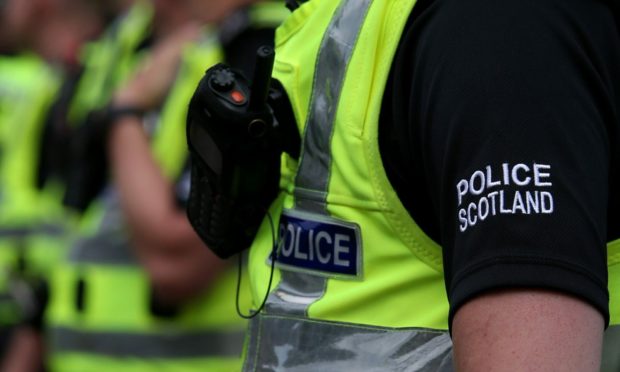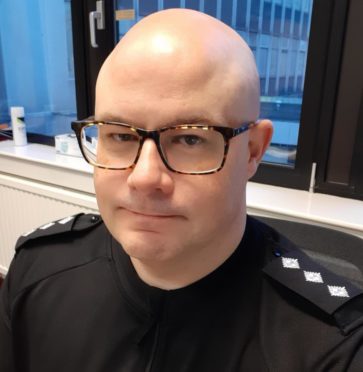Ahead of International Overdose Awareness day Chief Inspector Ian McKinnon from North East division speaks about the #AntiStigmaAberdeen campaign, as well as his work.
In my role as Chief Inspector for Partnerships, Prevention & Intervention, I’m involved in a wide and varied portfolio, working collaboratively to reduce harm and vulnerability in areas such as mental health, wellbeing, suicide prevention, drug and alcohol addiction, looked after children, domestic abuse, and hate crime.
With such a wide variety of topics, which are all emotive, challenging and complex in their own rights, you’d be forgiven for thinking that they have nothing in common, however over the last four years I came to realise that one theme that exists through every single one of them, and I’d argue that it’s probably one of the most impactful and harmful themes – stigma.
Stigma can be defined as a mark of disgrace associated with a particular circumstance, quality or person, and when applied to the workstreams I mentioned above, you might begin to understand what I mean.
Awareness day gives chance to reflect
As we approach International Overdose Awareness Day 2021 on 31st August, it gives us time to reflect a little and to think about those people dependent on alcohol or drugs and the families that live with and support them daily, who also have to deal with stigma.
Imagine having poor mental health or an addiction and wanting help, and the help that could save your life being readily available through services, charities or community organisations, but you don’t reach out because you fear you or your family will be labelled or judged or experience prejudice as a result of your need.
No one has stopped you getting help, but this invisible barrier is stigma in action.
I remember as a young man, waiting in line at a petrol station, and a person with a clear addiction chatting to me while we waited.
I was avoiding eye contact, and looking at my feet and not really taking them on. I didn’t know, and didn’t really think too much, about what was making me so anxious, or why I was distancing myself from a person who was friendly, humorous and just passing time while we waited.
As an older (and hopefully wiser) man, working in the police, I now understand it was stigma – I saw the label of the addiction and not the person, and reacted to that internal judgement rather than what was in front of me.
Team works to raise awareness of stigma
Looking back, I feel more than a little uncomfortable that I acted that way and whilst I can’t change the past, I now do what I can to change it when I see it happening.
My team works hard to raise awareness of stigma and its impact across all aspects of the communities and people we police because we understand that if people consciously or sub-consciously stigmatise, then those who need help will hide an issue affecting them.
Not judging is one of the most effective tools that you and I have to help others.
During August, we are raising awareness of the impact of stigma through the campaign #AntiStigmaAberdeen, working with the Local Authority, Health and Social Care, NHS, local and national charities, community groups and others to reach out and break the barriers caused by stigma.
I can only scratch the surface of stigma in this article, but if this has interested you, please explore the Community Planning Aberdeen page where there are lots of really impactful and involving videos and guidance – see what you can do to make a difference, and influence others to do the same.
It starts with one person. That could be you.

